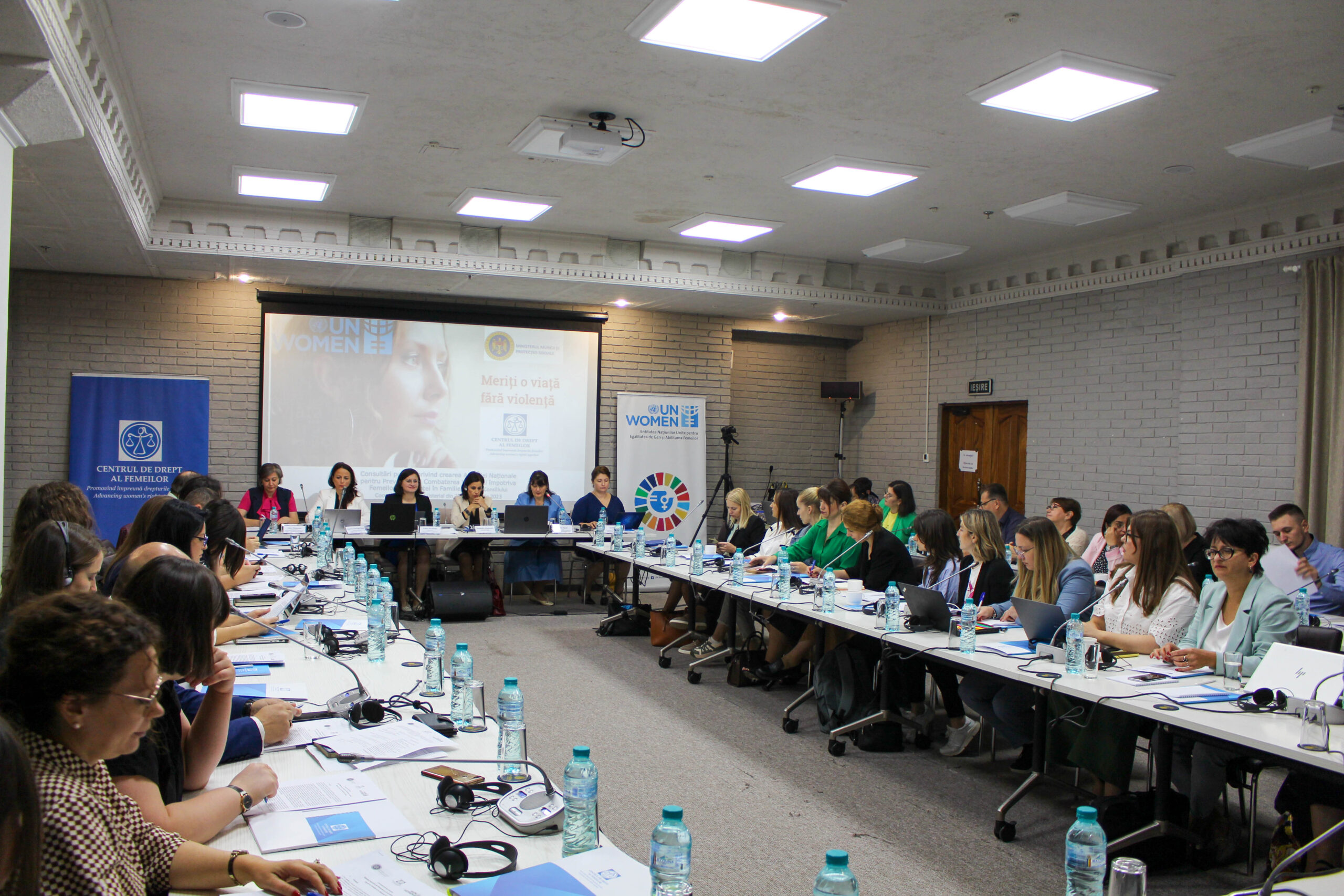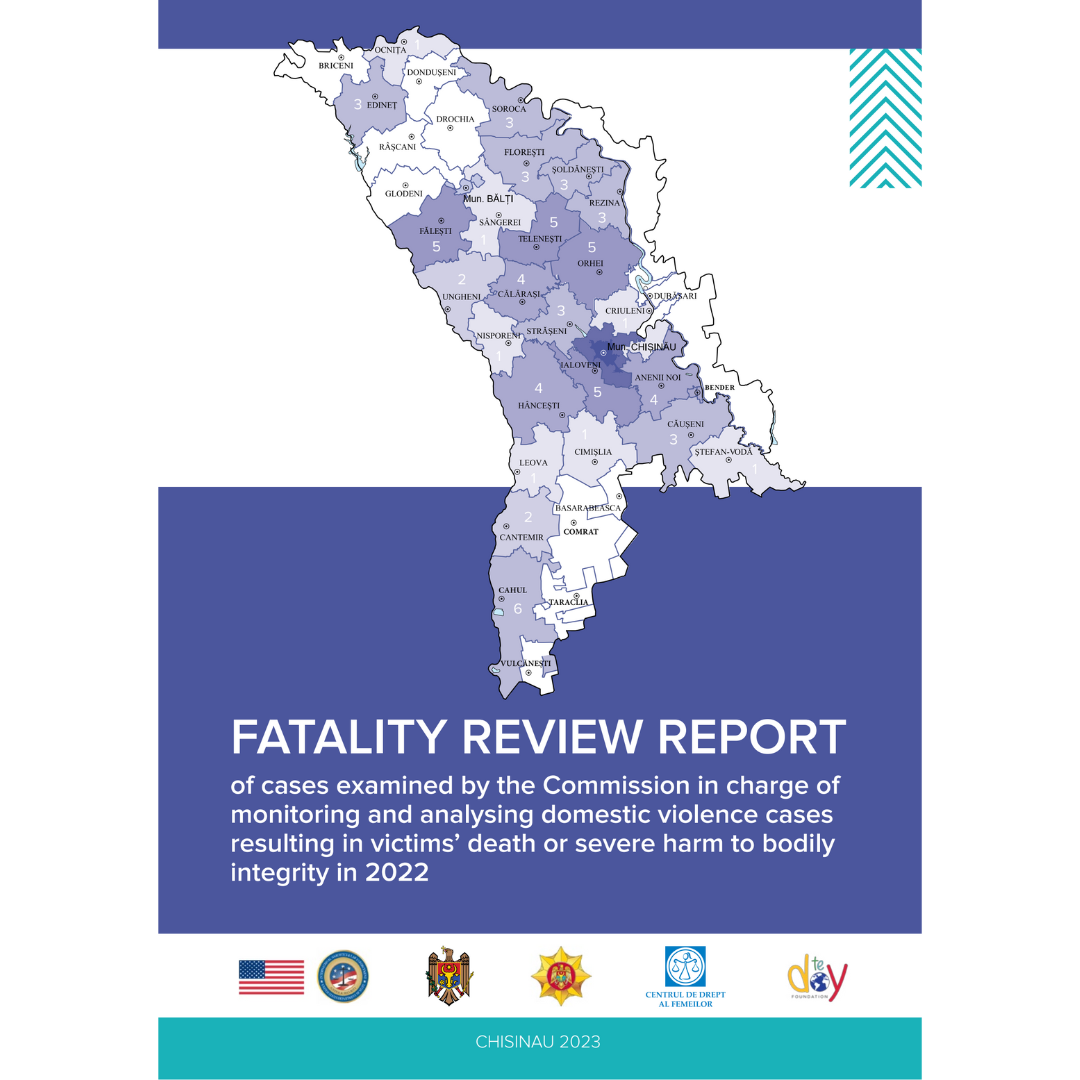Make an appeal!
What is an appeal?
The appeal is a legal remedy through which you require a higher court to reexamine the first court’s decision. If the court rules to refuse the issuance of the protection order you shall appeal the decision.
The decisions may be appealed, before becoming final, in the appeal court, which based on the materials from the file and of those that were submitted additionally, shall verify the accuracy of the circumstances of the dispute, the application and the interpretation of the rules of the substantive law, as well as the observance of the procedural law during the first court’s trial.
The first court’s decisions may be appealed at common law courts of appeal.
The first court’s decisions may be appealed at courts of appeal in line with the general rules.
The deadline for making the appeal is 30 days from the date when the operative part of the judgment was ruled, unless otherwise provided by the law.
The deadline for making the appeal shall be interrupted by the death of the participant in the trial who was interested to make the appeal or by the death of the representative to whom the decision was communicated. In such cases, a new communication shall be made when the succession is open and the appeal time shall start again when the decision is communicated. For the incapable heirs and those with limited exercise capacity or for those missing without trace the appeal time starts on the day when the tutor or the guardian is appointed.
The appeal time suspends the enforcement of the judgment issued by the first-level court, except for the cases provided by the law.
The timely enforcement of the appeal may suspend the court decision.
The request for appeal shall be filed with the court that ruled the decision that is appealed, with the payment of the state fee if the appeal is imposed with fee in accordance with the law.
The request for appeal and the new records that were not presented in the first court shall be submitted in a number of copies that meet the number of participants in the trial, plus a copy for the appeal court. The copies of the records shall be certified in accordance with the law.
The records annexed in a foreign language shall be submitted together with the translation, certified in accordance with the law.
The request for appeal shall contain:
- the court to which the appeal is being addressed;
- name or designation, domicile or office of the person who files the appeal, their procedural status;
- the appealed decision, the court that issued it, the judicial panel, the issuance date;
- the actual reasons and legal foundation for filing the appeal;
- problems invoked to support the appeal;
- the request of the person who files the appeal;
- name and domicile of witnesses, if it is requested to cite them in the appeal;
- the attached documents.
The request for appeal may contain other data concerning the appeal.
The request for appeal shall be signed by the person who files the appeal or by his/her representative. For the latter case, the request shall include a document certified in the prescribed manner, which certifies the powers of the representative if the file lacks such a document.
Proof of state fee payment shall be attached to the request for appeal if this is required.
The participants in the trial are entitled to submit written objections against the appeal, by attaching the records that confirm the rectitude of the objections.
The President of the first court, after receiving the request for appeal, the records and other related evidence that were not presented in the first court, shall order immediately the registration of the appeal.
After the expiry of the term for filing the appeal, the first instance court shall send the file to the appeal court the following day together with the filed appeals and related records that were not presented in the first instance.
Within 30 days from the date of receipt of the file for examination, the court of appeal shall carry out the procedural actions to prepare the dispute to be debated in a court hearing.
Once the time limit for preparing the dispute to be debated in the court hearing has expired, the appeal shall be examined in a reasonable term.
During the appeal trial appeal, the parties and other participants in the trial have the right to present new evidence if it was impossible for them to do it when the dispute was examined in the first instance.
The court of appeal shall verify, within the limits of the request for appeal, the references and objections submitted, the legality and validity of the contested decision regarding the ascertainment of the factual circumstances and the application of the law in the first instance.
The court of appeal is not related with the grounds of the appeal regarding the legality of the first instance decision, but it shall verify the legality of the entire decision.
The court of appeal shall rule on all the grounds invoked in the appeal.
The person who files the appeal cannot be subject to a more difficult situation than the decision appealed in the court, except the cases when he/she agrees and when the decision is appealed by other participants in the trial.
The person who files the appeal and his/her legally authorised representative can withdraw the appeal before the trial of the dispute in the court of appeal. The appeal shall be withdrawn in written form or verbally and in the last case, with the registration of this action in the minutes.
The procedural provisions concerning the trial of the civil dispute in first instance shall be applied in the court of appeal too.
The court of appeal, after hearing the appeal, is entitled to:
- reject the appeal and maintain the decision of the first instance court;
- admit the appeal and modify the decision of the first instance court;
- admit the appeal and cancel fully or partially the decision of the first instance court, by issuing a new decision;
- admit the appeal and cancel fully the decision of the first instance court and resend the dispute for retrial;
- admit the appeal and cancel fully or partially the decision of the first instance court, ordering the termination of the trial or to strike the request out of its list of cases;
If the dispute is sent for retrial with the consent of all the participants in the trial, the court of appeal shall indicate the procedural documents that are still valid, the other ones being cancelled by law.
The decision of the first instance court shall be cancelled or modified by the court of appeal if:
- circumstances that are relevant to the dispute settlement were not established and clarified fully;
- circumstances that are relevant to the dispute settlement, which the first instance court considers to have been established, have not been proved by sufficient and truthful evidence;
- conclusions of the first instance court, exposed in the decision, are in conflict with the dispute circumstances;
- substantive and procedural law was violated or applied erroneously.
A substantive legal decision cannot be cancelled for formal reasons alone.
When the debates and oral statements end, the judicial panels shall withdraw to the deliberation room to adopt the decision.
Following the deliberation, the judicial panel shall rule the operative part of the decision. The operative part of the decision shall be signed by all the judges from the judicial panel and shall be attached to the file.
If a separate opinion is expressed when the decision is taken, it shall be attached to the file.
The full decision shall be prepared within 15 days after the operative part of the decision is pronounced.
The decision of the court of appeal can be appealed as established.



